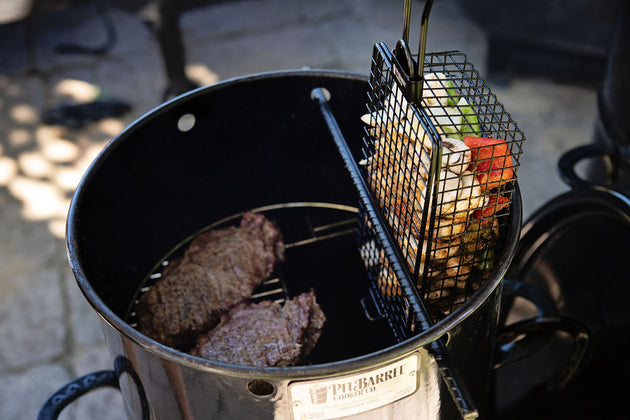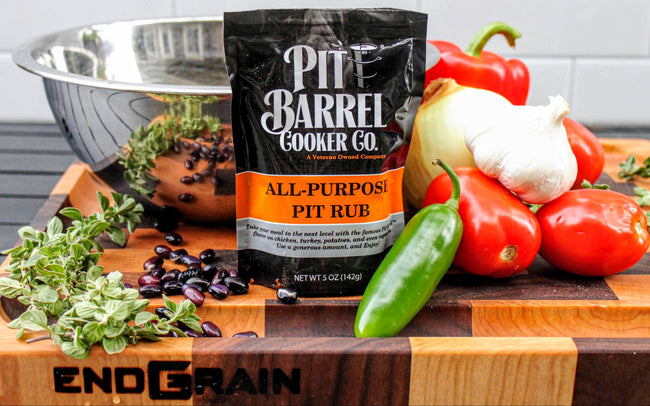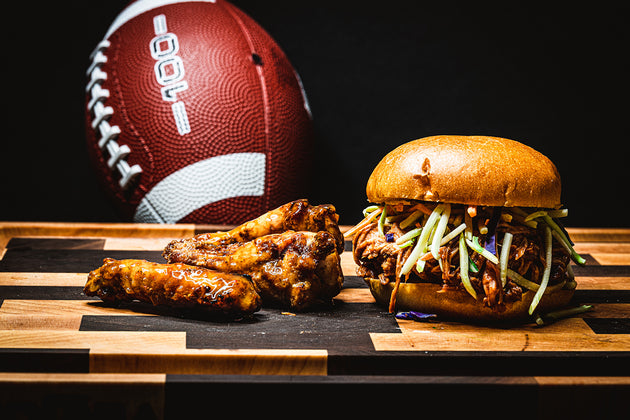Gas grilling has its proponents, mainly because it's so quick and convenient. There's also very little skill involved, which makes it appealing to the lowest common denominator where outdoor cooking is concerned. However, we're here to tell you that charcoal grills are far and away the superior choice. There are numerous reasons for this, but we've managed to narrow it down to just these 6. Thank you to the BBQ Host for making this.
1. The grills are more affordable.
It's possible to buy a charcoal grill for less money than you'd pay for a tank of gas. You can't say that about any other type of grill—and certainly not gas-powered units, which can easily fall into the four-figure range. If affordability is a top priority, charcoal is far and away the best option.
2. The fuel is inexpensive and easy to come by.
As if the grills didn't have enough to recommend them in the value category, the charcoal itself is another winner. Besides being affordable, charcoal provides grillers with additional peace of mind. Instead of messing around with a fuel gauge that may or may not be accurate, you can easily tell how much charcoal is left in your backup supply just by looking.
Best of all, if you appear to be in danger of running out, you can pick up more on your next visit to the grocery or hardware store. Even small gas stations and convenience stores will typically stock a bag or two.
3. It's all about the flavor.
No matter what the gas proponents say, there's just no substitute for the smoky, savory taste of food that's been prepared over a real live fire. We're not alone in this belief—the majority of American grillers agree that charcoal imbues the food with more flavor than gas flames.
If you think this only matters for hearty meals like steak and burgers, think again. Vegetables, pizza, and flatbread can also benefit from the flavor that charcoal provides. Even certain desserts can be prepared over the grill—and when you use charcoal as your fuel source, you'll want to return to those recipes again and again.
4. You don't have to worry about pricey repairs or gas leaks.
Since most charcoal grills are basically just receptacles for the fuel and ingredients, malfunctions are pretty rare. When they do happen, they're usually the result of a faulty part, which is easy enough to replace. Conversely, gas grills are more complicated, meaning that breakdowns can translate into expensive repairs.
Another aspect to consider? The possibility of gas leaks. When you have a gas grill, you have to perform regular inspections on the line and equipment to make sure that everything is in working order. Otherwise, you could be setting yourself up for a potentially dangerous explosion. If you store your grill for long periods of time—say, during the winter months—these inspections are even more vital.
Storing a charcoal grill, on the other hand, is a piece of cake. Just dump the ashes, clean out the reservoir, and give the grates a good scrubbing. The unit can be stored for months on end with no worries.
5. It's the most transportable option.
Sure, there are portable gas grills out there, but we think it's a lot easier to toss a bag of briquettes in the car than to struggle with a flammable tank. You don't have to mess around with a complicated setup, either. Just place the grill on the ground, add your briquettes and lighter fluid, and torch the pile. If you use a chimney starter, you can even skip the lighter fluid, thereby lightening your load all the more.
6. They're the best option for searing meat.
While some gas grills come equipped with a special "sear burner" for that all-important char, it's nearly impossible to duplicate the effect that's so easy to achieve with a charcoal fire. In fact, charcoal creates a hotter cooking environment overall, which increases its versatility.
Speaking of versatility, it's important to note that you can also use charcoal grills for low-and-slow cooking applications, such as smoking. All it takes is a little practice, and your results will have a more authentic vibe than if you'd taken shortcuts with a gas-fired unit.



